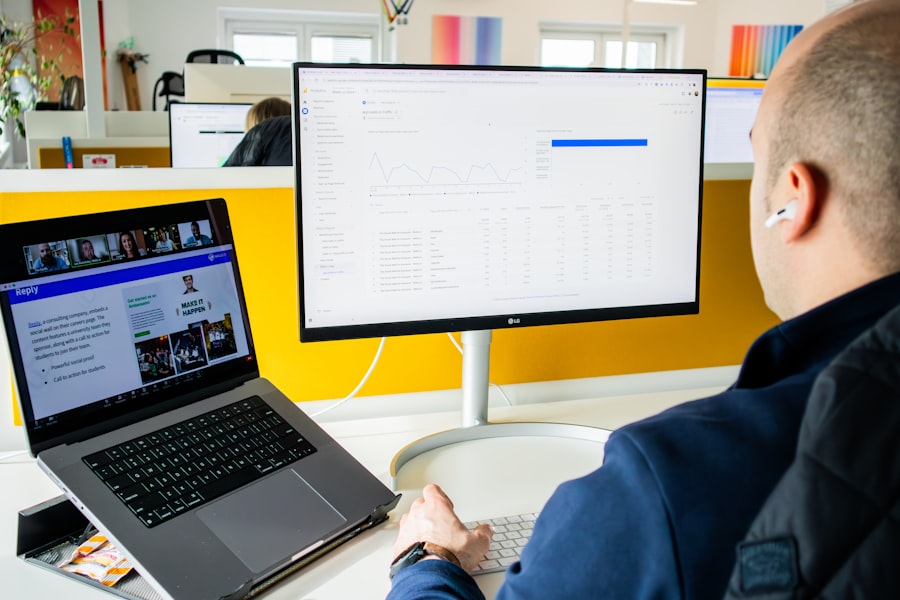Project management is the systematic approach to planning, executing, and controlling projects to achieve specific goals within defined constraints. It encompasses various processes, including initiating, planning, executing, monitoring, controlling, and closing. Project managers utilize various methodologies, tools, and techniques to ensure successful project completion.
Key components of project management include:
1. Scope management: Defining and controlling project boundaries
2. Time management: Scheduling and sequencing project activities
3.
Cost management: Budgeting and controlling project expenses
4. Quality management: Ensuring deliverables meet specified standards
5. Resource management: Allocating and optimizing human and material resources
6.
Risk management: Identifying, assessing, and mitigating potential threats
7. Communication management: Facilitating effective information exchange among stakeholders
8. Stakeholder management: Engaging and managing expectations of all involved parties
Project managers employ various tools and techniques, such as Gantt charts, critical path analysis, and earned value management, to track progress and make informed decisions.
They also utilize project management software to streamline processes and enhance collaboration. Effective project management is crucial for organizations across industries, as it helps deliver projects on time, within budget, and to the required quality standards. It also promotes efficient resource utilization, risk mitigation, and stakeholder satisfaction.
Key Takeaways
- Project management involves planning, organizing, and overseeing the execution of a project to achieve specific goals within a set timeframe and budget.
- Effective communication and collaboration are essential for successful project management, as they help in aligning team members, stakeholders, and resources towards a common goal.
- Time management and prioritization are crucial skills for project managers to ensure that tasks are completed on time and within budget.
- Risk management and problem-solving are important aspects of project management, as they help in identifying potential issues and finding solutions to overcome them.
- Utilizing project management tools and software can streamline processes, improve efficiency, and enhance collaboration within a project team.
Effective Communication and Collaboration
The Importance of Clear Communication
Clear and open communication is vital to ensure that every team member understands their roles and responsibilities, as well as the project’s goals and objectives. This open communication channel also enables team members to share ideas, provide feedback, and address any issues or concerns that may arise during the project.
Fostering Collaboration
Collaboration is equally essential, as it promotes teamwork and allows team members to work together to achieve common goals. To facilitate effective communication and collaboration, project managers should establish regular meetings and check-ins with the team. This provides an opportunity for team members to discuss progress, share updates, and address any challenges that may arise.
Tools and Strategies for Effective Communication and Collaboration
Utilizing collaboration tools such as project management software, instant messaging platforms, and video conferencing can help streamline communication and keep everyone on the same page. Moreover, encouraging an open and inclusive team culture fosters effective communication and collaboration, allowing team members to feel comfortable sharing their thoughts and ideas without fear of judgment.
Time Management and Prioritization

Time management and prioritization are critical skills for project managers. With multiple tasks, deadlines, and responsibilities to juggle, it is important to be able to effectively manage time and prioritize tasks in order to meet project goals and deadlines. Time management involves setting realistic timelines for tasks, allocating resources efficiently, and monitoring progress to ensure that everything stays on track.
Prioritization involves identifying the most important tasks and allocating resources accordingly. To effectively manage time, project managers should create a detailed project schedule that outlines all tasks and deadlines. This schedule should be regularly reviewed and adjusted as needed to ensure that everything stays on track.
Prioritization involves identifying which tasks are most critical to the success of the project and allocating resources accordingly. This may involve delegating tasks to team members based on their skills and availability, or re-allocating resources as needed to ensure that the most important tasks are completed first.
Risk Management and Problem-Solving
Risk management is an essential aspect of project management, as it involves identifying potential risks that could impact the success of the project and developing strategies to mitigate those risks. This may involve conducting a risk assessment to identify potential threats, developing contingency plans in case those threats materialize, and monitoring progress to ensure that any risks are addressed in a timely manner. Problem-solving is also a critical skill for project managers, as it involves identifying issues that arise during the course of the project and developing solutions to address them.
To effectively manage risks, project managers should conduct a thorough risk assessment at the beginning of the project to identify potential threats. This may involve analyzing potential obstacles, such as budget constraints, resource limitations, or external factors that could impact the project. Once potential risks have been identified, project managers should develop contingency plans to address those risks in case they materialize.
This may involve allocating additional resources, adjusting timelines, or developing alternative strategies to ensure that the project stays on track.
Utilizing Project Management Tools and Software
Project management tools and software are essential for streamlining processes, improving efficiency, and keeping teams organized. There are a wide variety of tools available that can help with task management, scheduling, communication, collaboration, and more. These tools can help project managers keep track of tasks, deadlines, resources, and budgets, as well as facilitate communication and collaboration among team members.
Some popular project management tools include Trello, Asana, Jira, Microsoft Project, and Basecamp. These tools offer features such as task tracking, scheduling, file sharing, communication tools, and reporting capabilities. By utilizing these tools, project managers can streamline processes, improve efficiency, and keep everyone on the team organized and on track.
Additionally, many project management tools offer integrations with other software applications, such as email platforms, document sharing services, and customer relationship management systems, which can further enhance productivity and collaboration.
Building and Leading High-Performing Teams

Recruiting the Right Team Members
To build a high-performing team, project managers should focus on recruiting individuals with diverse skills and experiences who can work together effectively.
Providing Clear Direction and Support
Once the team is assembled, it is essential to provide clear direction and set expectations for performance. This involves establishing clear goals and objectives for the team, providing regular feedback on performance, and offering support and guidance as needed.
Fostering a Positive Team Culture
Additionally, fostering a positive team culture that encourages collaboration, open communication, and mutual respect can help build a strong team dynamic, leading to a high-performing team that can achieve its goals successfully.
Continuous Learning and Professional Development
Continuous learning and professional development are essential for project managers to stay current with industry trends, best practices, and new technologies. By continuously learning and seeking out opportunities for professional development, project managers can improve their skills, expand their knowledge base, and stay ahead of the curve in an ever-changing industry. There are many ways for project managers to engage in continuous learning and professional development.
This may involve attending industry conferences and events, enrolling in training programs or workshops, pursuing certifications such as PMP (Project Management Professional), or seeking out mentorship opportunities with experienced professionals in the field. Additionally, staying informed about industry trends through reading industry publications, participating in online forums or discussion groups, or networking with other professionals can help project managers stay current with best practices and new developments in the field. In conclusion, understanding the fundamentals of project management is crucial for success in any industry.
Effective communication and collaboration are essential for successful project management. Time management and prioritization are critical skills for project managers. Risk management is an essential aspect of project management.
Utilizing project management tools and software can help streamline processes. Building and leading high-performing teams is essential for successful project management. Continuous learning and professional development are essential for project managers to stay current with industry trends.
If you’re looking to enhance your project management skills, you may also be interested in learning about the impact of digital skills on career growth. This article discusses the importance of staying up-to-date with digital trends and how it can positively impact your career. Check it out here.
FAQs
What are project management skills?
Project management skills are the abilities and competencies that enable a project manager to effectively initiate, plan, execute, monitor, and close a project. These skills include leadership, communication, time management, and problem-solving.
Why are project management skills important?
Project management skills are important because they ensure that projects are completed on time, within budget, and to the satisfaction of stakeholders. Effective project management skills also help to minimize risks and maximize opportunities for success.
What are some strategies for enhancing project management skills?
Some strategies for enhancing project management skills include obtaining relevant certifications, seeking mentorship from experienced project managers, attending workshops and training programs, and gaining practical experience through managing projects.
How can communication skills be improved for project management?
Communication skills for project management can be improved by actively listening to team members and stakeholders, being clear and concise in all communications, and using various communication tools and techniques such as meetings, emails, and presentations.
What role does leadership play in project management?
Leadership is crucial in project management as it involves motivating and guiding the project team, making important decisions, and resolving conflicts. Effective leadership can greatly influence the success of a project.
How can time management skills be developed for project management?
Time management skills for project management can be developed by creating realistic project schedules, prioritizing tasks, delegating responsibilities, and using time management tools such as Gantt charts and project management software.



